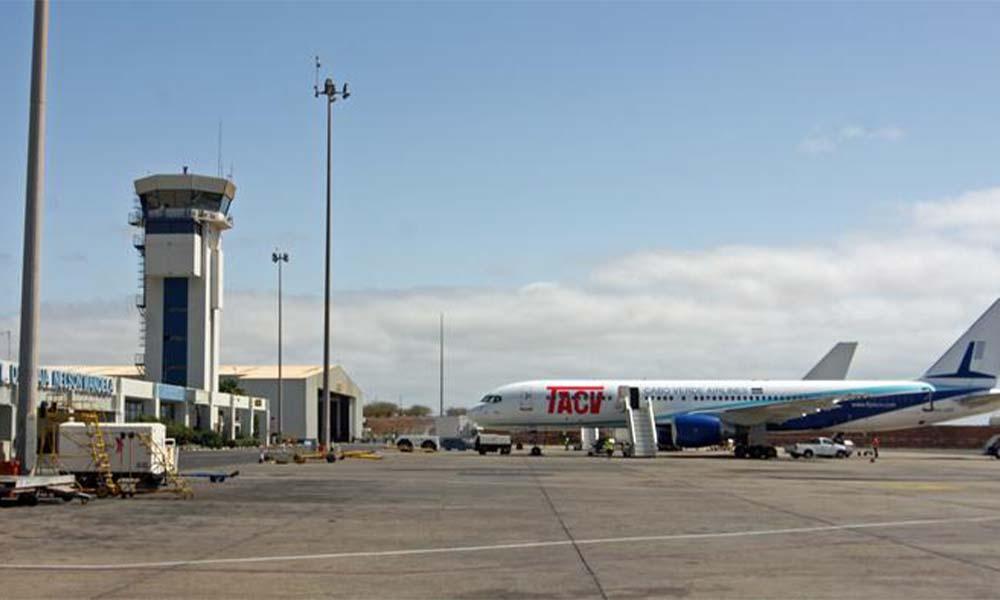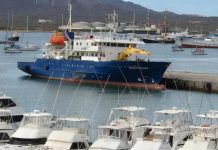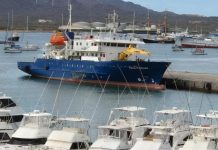Africa-Press – Cape verde. The concession of the public airport service to Vinci Airports, in addition to the “loose ends” described in the previous edition, also raises the question of defending the national interest, since, in this business, the Government did not maintain a mechanism that could lead it to act in the face of possible default by the concessioned party. This also clashes with recent IATA recommendations on precautions to be taken with airport privatization.
A question of the questions that arise with the recent decision of the Government to grant the concession of airports and airfields in Cape Verde to Vinci Airports is how the State will intervene in case of need to defend the national interest or national sovereignty.
This is taking into account that it was chosen the absence of a mechanism, such as the Golden Share, which allows the Government to intervene in the event of serious breach by the concessionaire or the need to defend the national interest or sovereignty.
In view of this situation, according to a specialist contacted by A NAÇÃO, the State has only one possibility, as it has decided to remove the Civil Aviation Agency (AAC) from any intervention in this process, as mentioned in the previous article.
“Was there no opening of the reference partner to other modalities in which the new ASA, for example, or the State could be shareholders? How would it be possible to keep the ASA brand associated with the airport business? Or did the government not make a point or did it not consider it strategic?”, asks our interlocutor.
He emphasizes, however, that “the risk is great”, as it is also “real”: “In all other privatization processes, the MpD governments were careless and lacking in these critical aspects of the contracts, when it was not the lawyers themselves and specialists from applicants to concessionaires and prepare documents and diplomas. The recent case of TACV is alive in everyone’s memory”.
The same specialist also considers that the State of Cape Verde, even with the privatization of ASA, must know that “in this sensitive sector it will continue to have enormous responsibilities”. Particularly with regard to security, protection and economic supervision of the concessionary entities.
For our source, in light of some recommendations from the ICAO (International Civil Aviation Organization), inserted in Doc 9082, on Fees for Airports and Air Navigation Services, “the concession must in no way diminish the State’s requirement to fulfill its obligations”. international obligations, namely those contained in the Chicago Convention, its annexes and in air services agreements, and observe the ICAO tariff policies in Doc 9082 (Doc 9562 – Airport Economics Manual – refer to No. 2.27 and Doc 9161 – Air Navigation Services Economics Manual – refer to nº 2.27)”, among others.
IATA “advises against” concession and privatization of airports
In December 2018, according to a publication by the former CEO of ASA, Mário Paixão, the director general and president of IATA (International Air Transport Association, which brings together more than 280 carriers worldwide), called the attention of States to the care to be taken with the privatization of airports, either through concession or through the sale of assets.
At the time, the president of IATA, Alexandre de Juniac, reinforced the organization’s criticism of the way in which concessions are made in the world. “The criticisms are supported by a study conducted by the McKinsey consultancy, whose findings revealed that privatizations made services more expensive for consumers, raised costs for airlines and did not bring substantial efficiency gains.”
Juniac, according to Paixão, even says that IATA “in general is not in favor of privatization, recommending that governments be careful with these processes”.
“He also mentioned that the problem is in the modeling of the processes, usually done on the knees and without rules to guarantee long-term benefits to passengers and carriers”, he highlighted.
“Already in June 2018, IATA had presented the document ‘Airport Ownership and Regulation’, prepared in partnership with Deloitte, whose executive summary immediately addresses the problem of economic regulation, that is, “private participation requires robust regulation and where it exists, it must be revised in the sense of greater efficiency”.
According to the same source, to date, the strategic decisions that guided the management of the Oceânica do Sal FIR and the airports, under the aegis of ASA, “provided an unprecedented qualitative leap” in the construction of a “dynamic and dynamic” civil aviation system. sustainable”, also enabling an airport network capable of catalyzing tourism and the airline business.
“In the process of separation that is now being engendered, the deputy prime minister confusedly stated that the FIR is a “CASH COW” (dairy cow) and that the “filet mignon” will remain in the state, while the lean cow ‘Network of Deficient Airports’ goes to the private sector”.
“Can you understand?”, asks Mário Paixão, stressing that “it is evident that the statements are inappropriate, in addition to being, for the first time in 37 years of activity in this region of flight information, being labeled in such a low way by a holder of public office”.
Government says it made a “good choice”
The Government guarantees that it complied with the Law by directly awarding the concession of airports and airfields in Cape Verde to the Vinci group.
Ulisses Correia e Silva said last week that his executive ended up making “a good choice”, considering that Vinci “is a world reference company, one of the five best in the world in airport management, which assures us that we have a good solution”.
Faced with the fact that the decision did not involve a public tender for the delivery of this concession, the prime minister assumed that it was an option of the Government, which has provided for the concession since 2016 in its program.
For his part, the deputy prime minister and finance minister, Olavo Correia, for many the government official who really gives cards in this dossier, guaranteed that all the rights of ASA workers will be safeguarded in the process of granting the public airport support service to civil aviation to the Vinci Airports group.
Olavo Correia also said that there is no reason for “stress” and added that after the enactment of the law by the President of the Republic, the Government will start a process of dialogue in which everyone will be informed and participate in this process.
“We think it is essential that acquired rights are preserved and safeguarded. The unions will be part of this process and all acquired rights will be safeguarded”, he said, stressing that, with this process, the executive is defending the public and employees’ interests.
“Above all, we are bringing a partner that will be able to make a contribution to accelerating economic growth, to diversify that economy and to make Cape Verde a free trade zone, a special zone anchored in the airport business and in the aviation business from from the island of Sal”, he added.
The Government advanced that with the business model defined with the future concessionaire, at the end of each year, the Cape Verdean State will be entitled to receive remuneration in the following ways: 2.5% of gross revenues from 2022 to 2041, increasing to 3 .5% of gross revenues from 2042 to 2051 and to 7% of gross revenues from 2052 to 2061.
If revenues exceed those provided for in the established plan, the concessionaire will still have to share additional revenues with the State, with 4% on up to 10% and 8% additional on more than 10%.
In addition, the concessionaire will have to make mandatory investments, in the amount of 96 million euros from 2022 to 2027, ranging from refurbishment of airfields, extension of runways, improvement of terminals and images at airports, reduction of environmental impact and compliance with airport regulations.
The concessionaire is also obliged to make non-mandatory investments, depending on the evolution of the volume of air traffic, of 619 million euros over the concession period.
Of this total, 281 million euros will be for expansion of airport infrastructure and 338 million euros for maintenance.
The Government also clarified that, in addition to managing the financial assets it holds, ASA will continue to be responsible for providing Air Navigation services, namely in the management of the Oceânica do Sal FIR, which will remain 100% in the public sphere, not being the target of concession to private.
For More News And Analysis About Cape verde Follow Africa-Press






